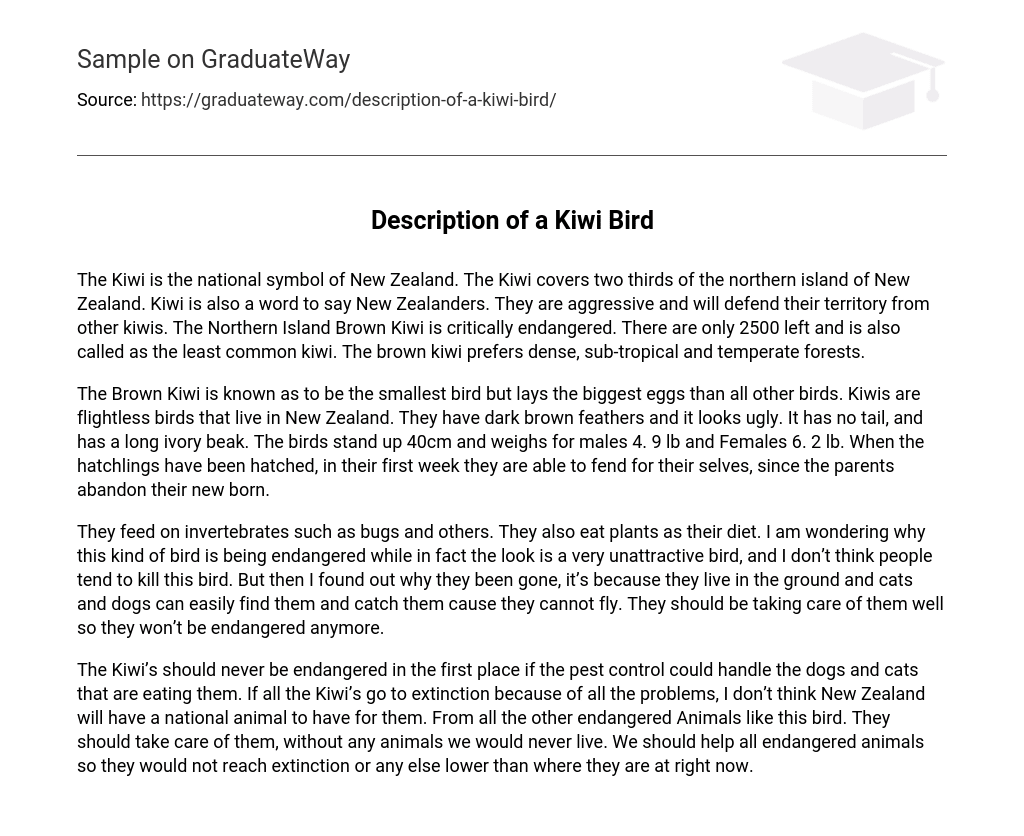The Kiwi, a national symbol of New Zealand, can be discovered in approximately two thirds of the northern island. It encompasses both a bird species and the inhabitants of New Zealand. These birds possess an aggressive nature and unwavering determination to safeguard their territory from other kiwis. The Northern Island Brown Kiwi, also referred to as the least common kiwi, faces critical endangerment as there are merely 2500 individuals remaining. This specific kind of kiwi flourishes in dense forests characterized by sub-tropical and temperate climates.
The Brown Kiwi, a bird species native to New Zealand, is known for its inability to fly. It possesses the distinction of laying the largest eggs among all bird species. Despite its small size, measuring at 40cm, it showcases dark brown feathers that may not be visually appealing to some individuals. The males weigh around 4.9 lb while the females weigh approximately 6.2 lb; both genders exhibit a long ivory beak and lack a tail. Interestingly, these hatchlings are independent within their initial week as their parents abandon them.
Despite their unattractive appearance, these birds feed on invertebrates and plants. It is puzzling why they are becoming endangered since people are not likely to intentionally kill them. However, their vulnerability to predators such as cats and dogs due to their ground-dwelling nature might explain this. Being unable to fly makes them easy targets for predators who can easily locate and catch them. Therefore, providing adequate protection and care is crucial in preventing the endangerment of these birds.
The Kiwi’s preservation should not have been necessary if pest control could effectively address the issue of dogs and cats preying on them. If the Kiwi population goes extinct due to these challenges, New Zealand would lose its national animal. We must prioritize the well-being of endangered animals, including this bird, as our coexistence depends on them. It is crucial that we assist endangered animals to prevent their extinction or further decline from their current status.





